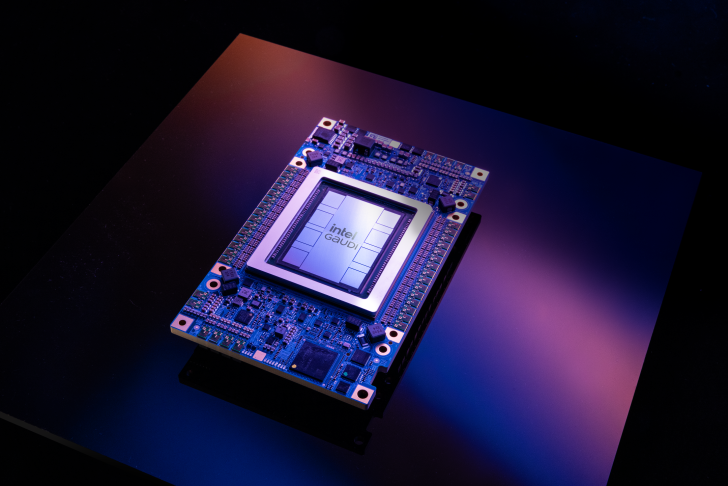Intel Struggles with Gaudi AI Accelerators, Missing Revenue Goals and Sparking Strategic Concerns
Intel’s journey in the competitive landscape of AI accelerators has hit a stumbling block, particularly with its Gaudi AI portfolio failing to meet even modest revenue targets. As the company navigates a challenging environment where competitors have sharpened their solutions, it’s becoming increasingly difficult for Team Blue to carve out a significant presence like NVIDIA and AMD. According to Intel’s recent Q3 2024 earnings report shared by CEO Pat Gelsinger, the firm fell short of its expected $500 million revenue from Gaudi AI products, an outcome that raises eyebrows given rival NVIDIA’s ambitions in the multi-billion-dollar range.
Despite the recent introduction of the Gaudi 3 AI accelerator, Gelsinger pointed out that Intel is struggling to gain traction. The transition to this new platform has been sluggish, and early customer feedback hasn’t generated the enthusiasm necessary for widespread adoption. Nonetheless, Intel remains optimistic, asserting that there is a burgeoning need for cost-effective solutions that thrive in an open-source environment.
It’s essential to note that while Intel reported a non-GAAP revenue of $13.284 billion—surpassing analysts’ expectations—the shortfall in Gaudi’s performance has raised significant questions about the company’s strategy in the AI market. Intel’s focus seems to be on catering to cost-efficient workloads rather than competing head-to-head in terms of raw performance with powerhouses like NVIDIA’s Blackwell and AMD’s MI300X. This approach has left Intel yet to fully explore the high-end segment of the AI market, a crucial area if it hopes to regain lost ground.


Looking ahead, Intel’s anticipated Falcon Shores architecture, featuring TSMC’s advanced 3nm process and CoWoS packaging, promises to bring the company in line with current industry standards. By transitioning to an external foundry for its AI business, Intel hopes to position itself more competitively against leading firms like NVIDIA. The road ahead appears challenging, but if Intel plays its cards right, there remains a promising future within the AI market, albeit with an urgent need for innovation and strategic shifts.
As we observe Intel’s moves within the dynamic AI landscape, it’s clear that the company has its work cut out to regain momentum. The future of AI accelerators is bright, and companies that can adapt to market demands will thrive. The AI Buzz Hub team is excited to see where these breakthroughs take us. Want to stay in the loop on all things AI? Subscribe to our newsletter or share this article with your fellow enthusiasts.




